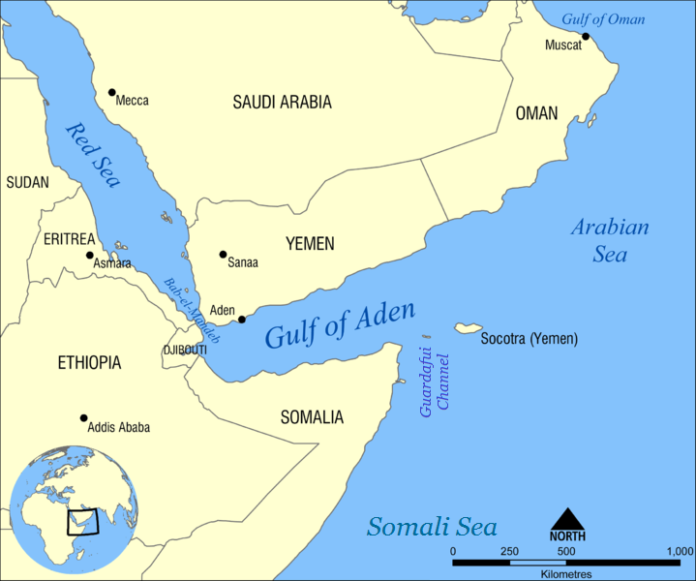In the strategic maritime corridors of the Gulf of Aden, the U.S. military’s intervention against the Houthi rebels has intensified, with the latest operation marking a critical juncture in the battle for control over these waters. American forces, in a calculated response to the Houthis’ maritime aggression, launched self-defense strikes to eliminate a Houthi-operated underwater drone, a first in the series of confrontations. The significance of this drone’s destruction is highlighted against the backdrop of the Houthis’ claim of a successful assault on the British cargo ship Rubymar, an incident that prompted the evacuation of its crew and left the vessel in peril of sinking.
The Houthi faction, emboldened by Iranian support, has demonstrated a growing naval capability, challenging international shipping by targeting vessels with sophisticated weaponry. This has escalated tensions in a region already fraught with geopolitical complexity. The U.S. Central Command (CENTCOM) confirmed that the Rubymar was hit late Sunday evening, which resulted in a distress call answered by both a merchant vessel and a warship part of a U.S.-led coalition dedicated to shielding ships from Houthi threats.
The confrontation at sea is part of a broader campaign by the U.S. military, which over the previous weekend reported striking three mobile anti-ship cruise missiles, one underwater drone, and one surface drone in territories under Houthi dominion. These strikes are part of an ongoing effort by Washington to deliver robust retaliatory actions across Yemen, seeking to neutralize the battle-hardened Houthi forces, which have shown resilience despite years of conflict and heavy bombings by the Saudi-led coalition.
Despite the advanced defensive measures employed by American and British forces to protect merchant vessels, the Houthis have managed to inflict varying degrees of damage on some boats and even hijack one in November. The attack on Rubymar, however, stands out as potentially the most consequential to date, given the critical state of the vessel post-strike.
The Houthi’s justification for these maritime offensives is rooted in a declared resistance against Israeli interests, with the group asserting a retaliatory stance against the war in Gaza. The U.S., however, has accused the Houthis of indiscriminately attacking commercial ships, thus sparking a major international security issue that poses risks to global trade and the world economy.
This narrative of events provides a stark illustration of the volatile situation in the Gulf of Aden, a pivotal maritime route where the convergence of regional hostilities and international trade interests creates a complex and dynamic security environment. As the global community watches closely, the strategic actions taken by the U.S. and the resilience of the Houthi rebels continue to shape the balance of power in this critical region.
Image is licensed under the Creative Commons Attribution-Share Alike 4.0 International license and was created by NormanEinstein.










